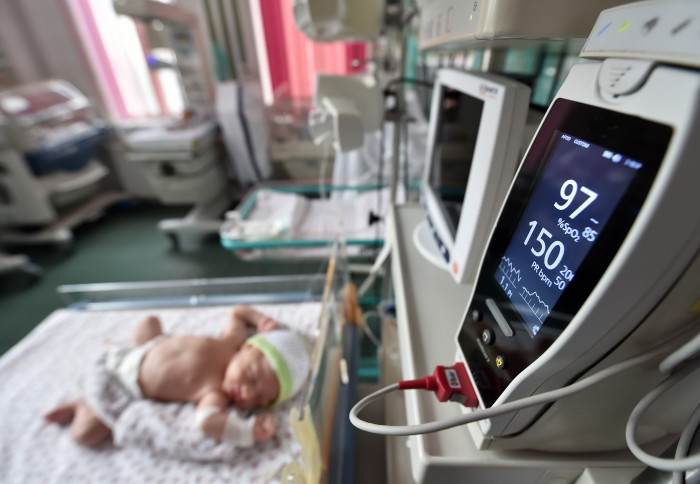IRDB awarded funds to investigate origins of preterm labour and birth

The IRDB has received Borne Foundation funding to understand the biological events driving the transition from pregnancy to established labour.
Premature birth affects 15 million babies across the world and in the UK 60,000 babies are born preterm every year. It is the leading cause of childhood mortality in the world, and many of those babies that survive are disadvantaged by chronic illness or disability. Yet pregnancy is one of the least explored aspects of human biology and research remains largely uncoordinated and underfunded.
The research, led at Imperial by Professor Phillip Bennett Director of the Institute of Reproductive and Developmental Biology (IRDB) in the Department of Metabolism, Digestion and Reproduction, aims to design and validate a ground-breaking methodology to develop a cell atlas and document the regulatory networks onto which the pathology of preterm labour can be mapped.
Borne’s Uterine Mapping Project (BUMP) was conceived after its founder consulted with clinical and scientific experts to identify what was holding back the advancement of preterm birth research. The group identified a strategic opportunity to facilitate the systematic and open access study of the biological interactions across different cells and tissues of women as they transitioned into labour.
Julian Mylchreest, Chairman of Borne, described BUMP as "a project that will look to map the uterus and create a cell atlas that can facilitate a step change in our knowledge of the mechanisms of preterm labour and new approaches for its prediction and prevention”.
Speaking about the award, Professor Bennett said, “On behalf of my collaborators at Cambridge University, the Wellcome Sanger Institute, the European Bioinformatics Institute and University College London, we are delighted to have been awarded this funding. Our study brings together world leading experts in systems and cellular biology, multi-omics, data integration and preterm birth to study multiple potential regulatory systems, cell-cell interactions and target tissues in carefully characterised subjects to understand how these factors interact regionally and temporally as the uterus prepares for labour.”
Professor Mark Johnson, Founder of Borne, said, “Childbirth is the inevitable maturation event at the end of pregnancy, and we do not know why labour is sometimes triggered prematurely, often with devastating lifelong consequences on the baby and its family. Research into preterm birth is underfunded and under-coordinated, and we are excited to be taking the first steps towards making our vision of an open access cell atlas of the uterus – what we call BUMP – a reality.”
Article text (excluding photos or graphics) © Imperial College London.
Photos and graphics subject to third party copyright used with permission or © Imperial College London.
Reporter
Benjie Coleman
Department of Surgery & Cancer